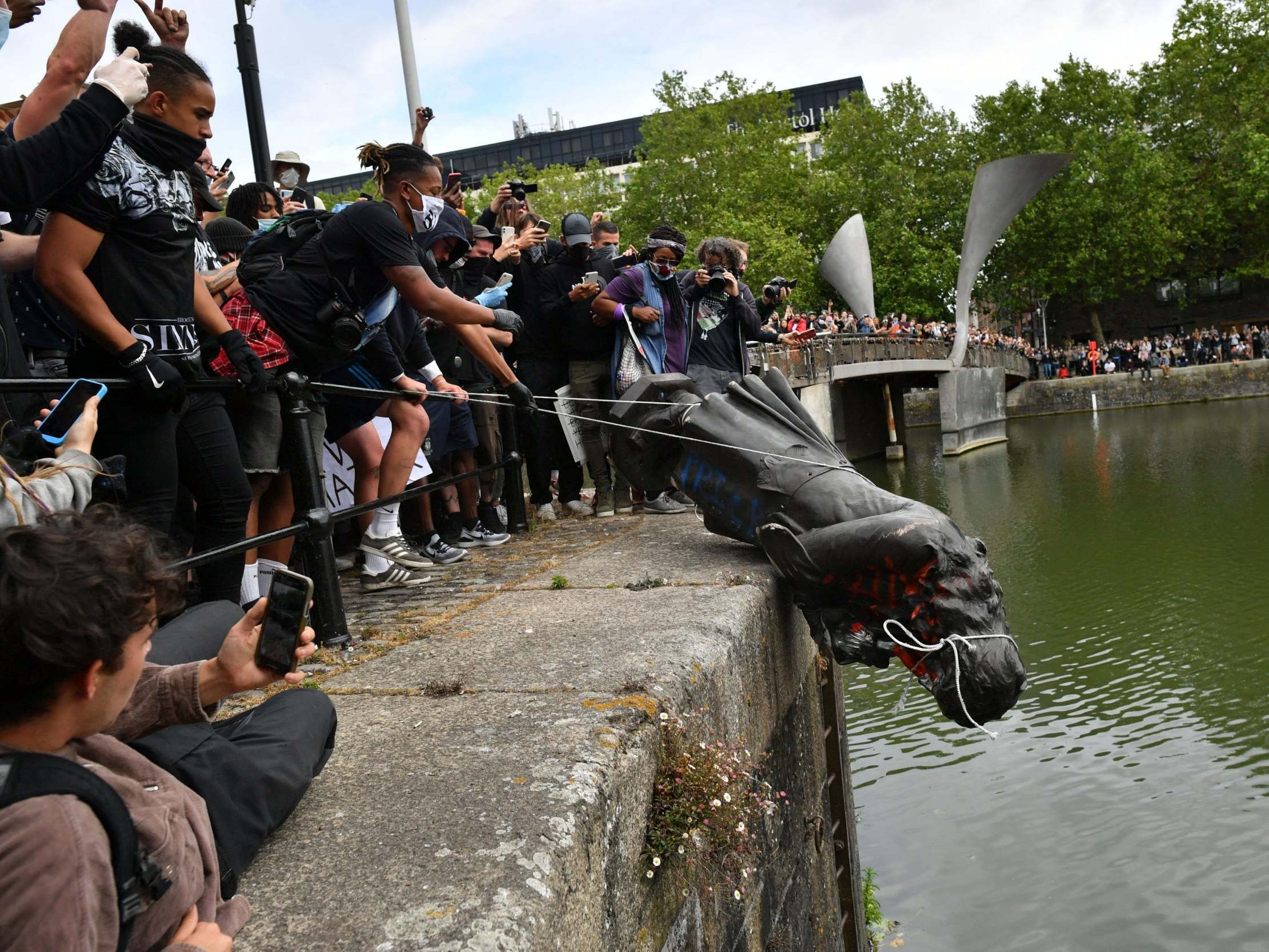It is time British schoolchildren were taught properly about the slave trade
The issue of Britain’s past has been the subject of many recent conversations with contacts all over the world, writes Bel Trew


Few would have thought a statue of a 17th-century merchant in Bristol would interest revolutionaries abroad.
But this week several of my WhatsApp groups were ablaze with discussions about the video of anti-racism protesters throwing the statue of British slave trader Edward Colston into Bristol’s harbour.
Colston was a member of the Royal African Company, which transported about 80,000, men women and children, from Africa to the Americas as slaves. Part of this wealth from the slave trade helped build vast swathes of the city.
For decades campaigners have lobbied unsuccessfully for the removal of the controversial and upsetting monument celebrating him.
But the conversations I was having with people from places like Egypt, the occupied Palestinian territories and Sudan were not about whether the monument should or should not have been dragged of its pedestal with rope. They pivoted around a horrible little truth that was kicked up in the discussions about the event, the figure of Colston, the history of the British slave trade and empire.
That revelation was that, until comparatively recently, British school children didn’t have to learn about the slave trade and it is not mandatory to study the devastating impact British imperialism and colonialism has had on the world.
Growing up, these subjects simply did not appear in any of my school books. History lessons were dominated by the Tudors and their antics, as well as 20th-century foreign monsters like Stalin and Hitler.
Any knowledge about British colonialism and its horrific legacy was gleaned from reading outside the curriculum and more recently being confronted by uncomfortable truths while working in places that my country has exploited and occupied.
It doesn’t help that Britain’s racist history has also been buried in physical memorials like the Colston statue which celebrated the man as a “philanthropist” rather than marking him as a slave trader.
Thousands of British families – and even towns and cities – grew rich on the slave trade and colonial enterprises but that is rarely reflected in books, plinths or plaques.
In fact, British involvement in the slave trade was only made a compulsory subject for secondary school children as late as 2008.
Even today, according to recent research, studying the empire is not taught in a systematic way in schools. School children do not interrogate the economic, political, social and cultural violence that built those structures and allowed them to flourish. They do not even explore British black history.
This is something British initiative The Black Curriculum hopes to change. In the wake of the Black Lives Matters protests in the US and across the world, it has renewed its calls for mandatory inclusion of British black history in the UK’s curriculum.
Campaigners say the British curriculum omits the vast contributions black people have made to the UK. Instead the curriculum focuses solely on dehumanising aspects such as surface level discussions about slavery.
Looking at the UK from abroad, it is staggering how far behind we are in so many ways.
Maybe we can use this moment of revolt to take a long hard look at what is wrong and implement change.
Yours,
Bel Trew
Middle East correspondent
Join our commenting forum
Join thought-provoking conversations, follow other Independent readers and see their replies
Comments